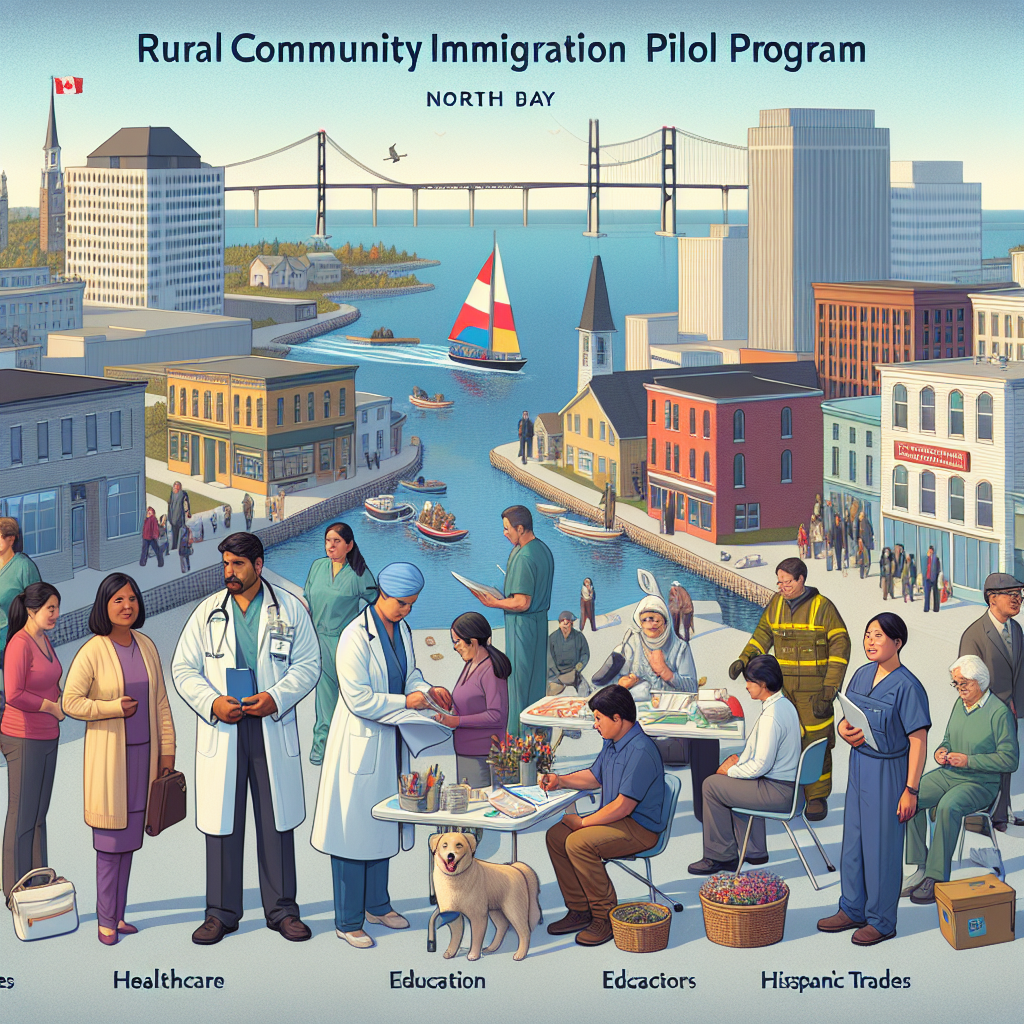North Bay Unveils Employers for Rural Residency Program

North Bay’s Rural Community Immigration Pilot: A Gateway for Foreign Workers
North Bay, a vibrant city in Northeastern Ontario, is making strides to attract foreign talent through its participation in the Rural Community Immigration Pilot (RCIP). This initiative is particularly significant for the region, which includes the Nipissing District, Parry Sound District, and the Town of Latchford, as it aims to address local labor shortages and enhance community growth.
Key Highlights of the RCIP
-
Designated Employers: North Bay has unveiled a list of employers eligible to participate in the RCIP. These employers span various sectors, including health, education, trades, and business, providing a broad range of job opportunities for foreign workers. Some notable designated employers include:
- Algonquin Nursing Home (Health)
- Community Living North Bay (Education, Law and Social, Community and Government Services)
- Bay Glass Contracting (Trades, Transportation, and Equipment Operators)
-
Pathway to Permanent Residence: The RCIP is an employer-driven program designed to facilitate permanent residency (PR) for foreign workers who secure job offers from these designated employers. This opportunity not only fills essential roles in the community but also allows newcomers to build a future in Canada.
-
Eligibility Requirements: To qualify for the RCIP, candidates must hold a valid job offer in a priority occupation, meet educational and language proficiency standards, and demonstrate financial stability. Additionally, a crucial step involves obtaining a community recommendation through an application process managed by the employer, followed by submitting PR applications to Immigration, Refugees and Citizenship Canada (IRCC).
- Regular Updates: The North Bay RCIP will consistently update its list of designated employers, providing opportunities for more businesses to engage with the program and further diversify the local workforce.
Insightful Analysis
The RCIP offers a compelling solution to the challenges of labor shortages faced by rural communities across Canada. By focusing on employer-driven immigration, North Bay is not only addressing immediate workforce needs but also fostering long-term community development. This initiative aligns with broader national goals of revitalizing rural areas and promoting economic growth through immigration.
The diverse range of sectors represented by the designated employers highlights the multifaceted nature of the local economy. From healthcare to trades, the RCIP emphasizes the essential contributions of various industries, showcasing North Bay as a welcoming destination for skilled workers.
Moreover, the structured eligibility criteria and community recommendation process serve to ensure that newcomers are adequately prepared to integrate into the local workforce, thereby enhancing their chances of success in Canada. This thoughtful approach could set a precedent for other communities looking to implement similar immigration strategies.
A Unique Perspective
As communities like North Bay embrace the RCIP, it’s crucial to recognize the broader implications of such initiatives. The integration of foreign workers can lead to cultural enrichment and innovation, driving economic resilience in the face of demographic shifts. However, it also necessitates a commitment to fostering inclusive environments where newcomers feel valued and supported.
For individuals considering the RCIP, this is not just an immigration pathway; it’s an opportunity to contribute to a community that is eager to embrace diversity and growth. As North Bay continues to evolve, it could become a model for other rural regions striving to attract talent and thrive in an increasingly competitive global landscape.
In conclusion, the Rural Community Immigration Pilot in North Bay stands as a beacon of opportunity for both foreign workers and the local community. It reflects a strategic approach to immigration that prioritizes collaboration between employers and newcomers, ultimately paving the way for a prosperous and inclusive future.
Reference



